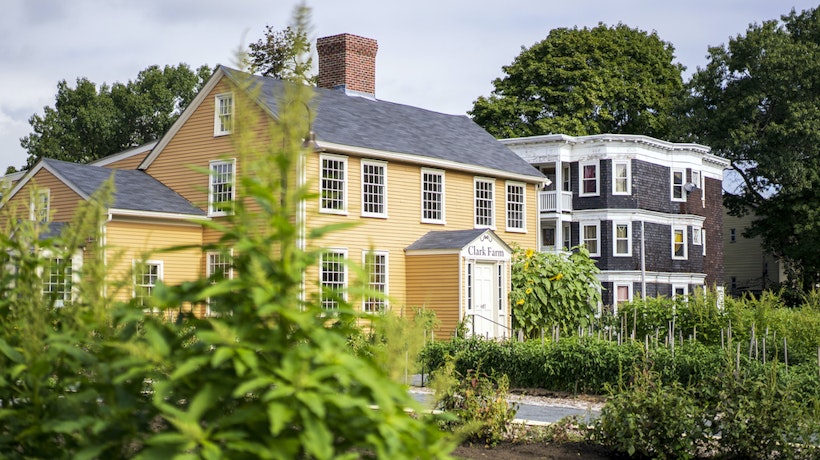
Since 2012, the Driehaus Foundation National Preservation Awards have honored distinguished individuals, nonprofit organizations, public agencies and corporations whose skill and determination have given new meaning to communities by preserving their architectural and cultural heritage. The coveted awards recognize efforts such as citizens saving and maintaining important landmarks, companies and craftsmen restoring the richness of the past, public officials supporting preservation projects and legislation in their communities and educators and journalists helping Americans understand the value of preservation
“We are excited to be able to support these National Trust awards, especially during a year that has presented unpredicted challenges for many of us,” said Anne Lazar, Executive Director of The Richard H. Driehaus Foundation. “This year’s winners show the brilliance and breadth of architectural excellence and the deep commitment each winner has to preserving historical spaces, so they may be appreciated for generations to come.”
The Awards are presented annually following a juried competition process. This year’s recipients were honored at the virtual National Preservation Awards ceremony, hosted by television host and preservationist Bob Vila, on October 29, 2020 as part of PastForward Online 2020.
The 2020 winners are:
- Fowler Clark Epstein Farm in Boston, Massachusetts, honored for its innovative adaptive re-use and partnerships, is a rare surviving Federal period farmstead that now serves as a residence, greenhouse, space for educational courses, and productive urban farmland. Historic Boston Inc. (HBI) purchased the property in 2015 after it was the subject of litigation between the Epstein estate and the City of Boston over “demolition by neglect.” To develop a natural re-use for the site that satisfied both historic building preservation and contemporary needs for agricultural uses, a symbiotic partnership among four non-profit organizations evolved that brought the best of each’s expertise to the development and construction of this unique enterprise in the Mattapan neighborhood of Boston. HBI, the Urban Farming Institute, the Trust for Public Land, and North Bennet Street School worked together to carry out the transformation of this distressed 18th century farmstead. The result is a creative urban farming solution that proves the preservation field’s value to important community initiatives, such as reducing unemployment, increasing food access, and building new green space.
- Chelsea District Health Center in New York City, honored for its reimagining of a crucial community medical center, was one of 14 New Deal era district health centers formed to bring care to underserved communities and now serves the same mission in an improved space. In the early 2000s, steps were taken by the NYC Department of Health and Mental Hygiene to transform several of the health centers into 21st-century facilities that would accommodate sexual health clinics to combat the growing incidents of STDs, particularly HIV/AIDs. Commissioned by the City of New York, Stephen Yablon Architecture dramatically transformed the aging Art Deco Chelsea District Health Center into a state-of-the-art medical facility, which reopened for use in March 2018. Inspired by its location in a public park, their design reinvented the typical sexual health clinic experience by creating a welcoming, reassuring, and destigmatizing space that is safe for all patients. The project was funded by the NYC Department of Health and Mental Hygiene and was managed by the NYC Department of Design and Construction under their Design Excellence Program.
- Universal Life Insurance Company Building in Memphis, Tennessee, honored for its restoration of an architecturally unique site with a long tradition of community empowerment, was once home to the largest Black-owned business in Memphis and now continues this legacy as an economic development resource for its diverse community. Designed in 1947 by the renowned African American architecture firm, McKissack and McKissack, the Egyptian Revival-style building’s original owner was the rapidly expanding Universal Life Insurance Company (ULICO), which was established in 1923 by Dr. J. E. Walker, A. W. Willis and M. W. Bonner. The Walkers also founded Tri-State Bank to “constructively change community conditions” for African Americans in Memphis. By 1973, ULICO had become the largest Black-owned business in Memphis and the fourth largest Black-owned insurance firm in the nation. The building was also used as a meeting place for organizers of the Civil Rights Movement, such as Jesse Jackson and Sammy Davis Jr. After decades of service, ULICO began terminating its operation in 2000 and Self Tucker Properties, LLC purchased the building from Tri-State Bank. An innovative public-private partnership with the City of Memphis yielded critical funding for the restoration and the City committed to a 10-year lease for approximately 48% of the available space in the building. The City of Memphis Office of Business Diversity Compliance and Self + Tucker Architects now occupy the building.
The Fowler Clark Epstein Farm in Boston, Massachusetts. Image courtesy of Ian MacLellan Photography.
Image description: A large yellow farmhouse surrounded by green crops and tall green trees.


